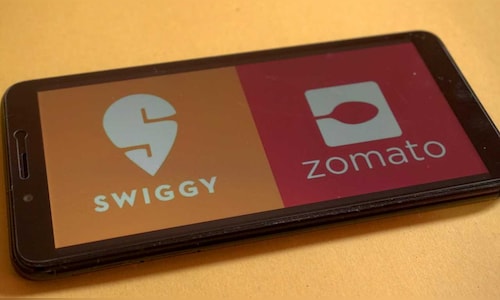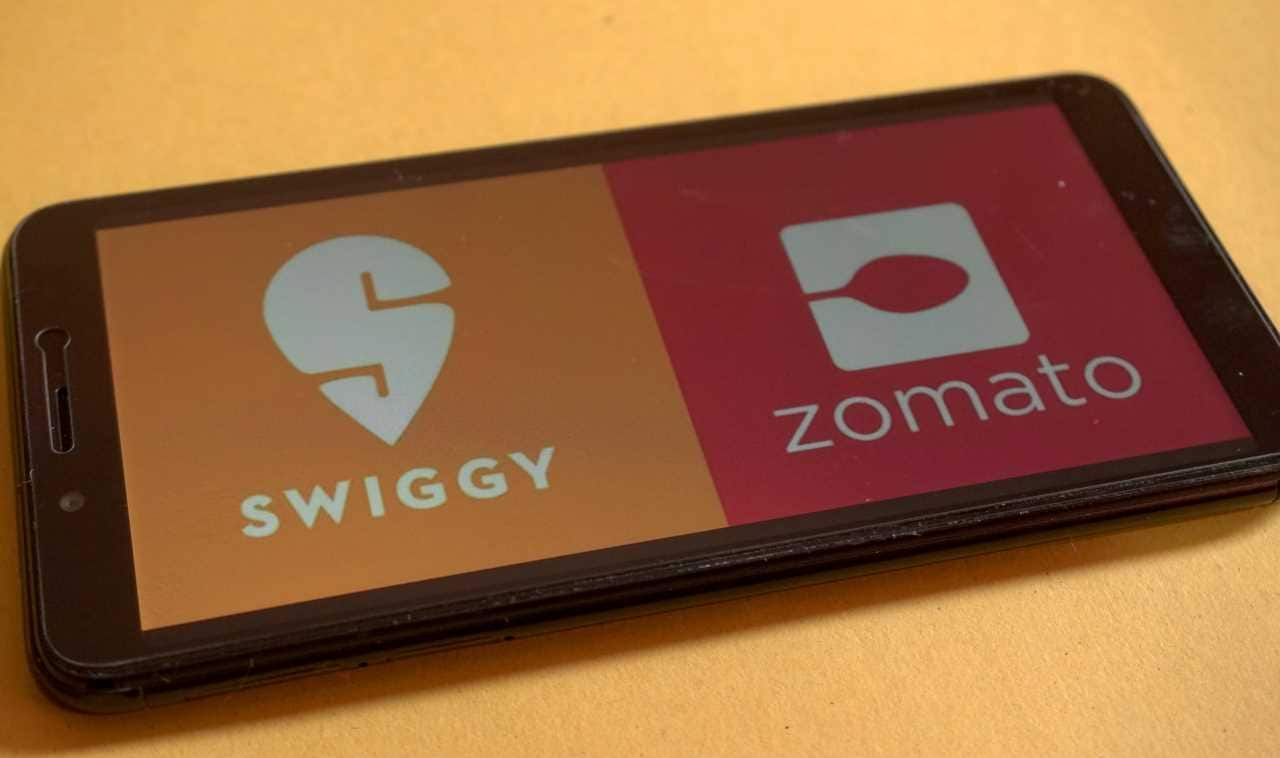

Sagar Daryani, President of the NRAI, called this move an “abuse of power” and accused the companies of breaching trust by competing directly with restaurants they claim to support.
“Aggregators are supposed to facilitate the food business by ensuring delivery, but launching their own food apps like Snacc by Swiggy and Bistro by Blinkit is unacceptable. This is sheer abuse of power, and we completely condemn it,” Daryani asserted in an interview with CNBC-TV18.
Daryani highlighted several key grievances against Swiggy and Zomato. Chief among them is the alleged misuse of data collected from partner restaurants. “They have all our data, and they don’t share it with us,” he explained. “They know exactly who our customers are, while we face consumer masking. They can easily divert traffic to their apps and sell similar products, like samosas or momos, under their private labels.”
This practice, according to Daryani, puts smaller restaurants at a severe disadvantage. “For the small player selling chai or biryani in a locality, this is devastating. They’re now forced to compete with the very platforms they depend on for delivery. It’s not a level playing field,” he said.
The NRAI president also pointed out that Swiggy and Zomato had previously assured the association that they would not enter the food business directly. “We feel backstabbed. These were verbal assurances given during past conversations. Yet, here we are, with Snacc and Bistro already launched,” he lamented.
The NRAI is now exploring legal recourse. Daryani indicated that the association might add these grievances to an ongoing probe by the Competition Commission of India (CCI) or pursue separate legal action. “We cannot wait and watch while our business gets obstructed. An injunction or other legal measures are definitely on the table,” he affirmed.
The restaurant industry has already been grappling with high commissions, deep discounting, and flash sales imposed by aggregators. According to Daryani, this new development compounds an already difficult situation. “Margins in online food delivery are almost non-existent. Adding direct competition from aggregators will make survival impossible for many small operators,” he warned.
Daryani also pointed to regulatory precedents in India’s e-commerce sector, where companies like Flipkart are restricted from selling private labels. “If e-commerce giants aren’t allowed to do it, why should Zomato and Swiggy be any different?” he questioned.
Below is the verbatim transcript of the interview.
Q: Your objection here is on the launch of Snacc by Swiggy and Blinkit’s Bistro and not exactly the offerings like Bolt. So, help us understand what are you alleging here? In the statement, you said that this is a case of misuse of private labels and infringing on intellectual property rights. So, help us understand what exactly you are alleging by this?
Daryani: We are completely for quick commerce in food. I think it just adds that zing to food delivery. Restaurants that can adapt to quick commerce in food are going to benefit because everyone wants convenience.
What we’re not okay with is both Swiggy and Zomato getting into their private labels and launching their quick commerce app like a Snacc or a Bistro Cafe which is by Blinkit which is owned by Zomato.
What they do in these apps is, they sell similar products that restaurants sell be it a samosa or a momo or a chai. These guys have their entire data, and they don’t share their data with us. They exactly know who our customers are and for us, there is consumer masking which I believe is unfair. But what they can easily do is they can migrate our traffic to their app and sell similar products which I believe is unfair and then getting into private labelling is getting into the food business. Aggregators are supposed to facilitate the food business by ensuring food delivery but they getting into the food business is a complete abuse of power. I think this needs to have a relook. I think we are going to take legal recourse if needed and we are contemplating.
But on a very serious note, we were always given assurances by Swiggy and Zomato that they would never get into the food business. But as partners, we feel that we’ve been backstabbed in a way because this is absolutely what they are doing. They are doing this because they are competing with Zepto Cafe, which is doing quick commerce in food. Now, just because they want to compete with Zepto Cafe, and they launch a Snacc or they launch the Bistro app, we are the ones who get sandwiched. And I think this is going to adversely affect the food business, it’s going to adversely affect the smaller players who sell snacks like samosas, momos, tea, and coffee or biryani. It’s unfair, and we completely condemn it. We grossly hold it against us. And we will not wait and watch, we will take whatever legal recourse we can. But we feel this is sheer abuse of power.
Q: You said they had assured you that they will not launch. So, these were conversations that you were having in the past with both Swiggy and Zomato. Were these more of like verbal agreements? What was the discussion with these companies about them not launching their own cloud kitchens or their own private labels?
Daryani: We’ve always looked at aggregators as partners, we’ve always had a very candid chat with them and we continue to do that. Food delivery definitely helps the food vertical space, but the high commission has demolished this business to a large extent. And then there’s deep discounting, now you have the flash sales happening, etc. But we already are in the CCI with them, there’s already a legal battle going on where we’ve anyways mentioned this to them that private labelling, etc. Initially, it was only Swiggy doing it, then we were lately verbally assured by Zomato that they would never get into this space. But now, as time is flowing by, although we are already there in the CCI, it’s been more than three years, but we just cannot wait and watch and see ourselves or our business just get absolutely obstructed by the actions of these aggregators because they are growing their business, and they’re getting into our domain, they’re getting into our space, which we highly, highly condemn and we just can’t wait and watch. It is very important to take the legal course, whether it’s CCI, whether it’s any other legal platform, we will consult and move ahead. But we just feel the need to not get suppressed by the sheer power and dominancy.
Firstly, they have all our data, and that data is not even with us. They are our customers, but data is not shared with us. Consumer masking is something which we were anyways against it. And we were always worried that if they ever get into our space, it’s going to disrupt the industry. And that is what they’re now doing. And we just cannot sit and wait and watch.
NRAI is the voice of the restaurant industry. For us, it is not just the bigger players, but it’s also that one single small restaurant in a particular locality selling local food. And you don’t want his or her business to get affected. So, we are deeply concerned about this.
Q: Data masking is something that is being addressed in the CCI probe also. But in terms of legal routes now, what are you looking at? What are the options that you have in front of you? Are you already talking to CCI again? What are the options? Can you add to the existing probe?
Daryani: Swiggy just announced the launch of Snacc yesterday and we knew about the Bistro Café. Internally we’ve been talking to our legal counsel and we’ll go by the advice that we get whether we add on to the current CCI case or we do a separate legal case, whether it’s CCI, whether it’s any other legal platform, we’ll figure I think it’s too early for us to mention but we’ve already started working on it. We’re not going to wait and watch.
Q: What are you seeking? You want an injunction, you want it to be blocked? What is the outcome that you’re expecting?
Daryani: I think we can’t allow these aggregators to do the food business, sell the similar product that we are selling, having all our data, I think that’s completely unfair.
We definitely will seek an injunction if we have to. Whether it’s injunction or it’s some other terminology I’m not very sure at the moment, we will go by the advice we get from our legal counsel but definitely, this cannot happen, this has to stop. We will put in our best foot forward to let it stop.
We could have very easily gone and spoken to them about it but they did not speak to us before launching it. If it’s a partnership, the communication has to go on both ways, it just cannot be one way. It’s fine. They’ve done what they had to, we’ll do what we have to, to protect our interest. But we will not wait and watch. We will not take this under our belt. We will do whatever is best for the interests of the fraternity.
Q: Have you had a conversation with Swiggy or Zomato yet about this? But you said you have not done that yet.
Daryani: In the past, we’ve had several conversations. Whenever a user downloads the Zomato or the Swiggy app, they are anyways giving consent to share the data with the restaurant. So, the fact that the data is not shared with the restaurant is absolutely unfair, according to the fraternity. However, we can agree to disagree there. But whenever we’ve had conversations with them, requesting to share data with us, we’ve always been told that there are different confidentiality agreements that they need to follow, etc. But we’ve been always given a verbal assurance that they will never get into the food space. And now they are getting into our territory. So, we’ve had conversations before, we can continue having conversations, but they’ve already gone out there, launched the apps, announced the apps. We can’t just sit and wait and watch, we need to take some action. We need to protect the interest of restaurants. And that’s why this body exists. I have nothing personal against Zomato. I do a lot of business personally with them, but that’s different. That relationship is more of a principle-to-principle relationship. Here, I’m representing the fraternity, where I need to look into the interests of everyone involved in the fraternity. We have so many cloud kitchen operators.
Anyways, this food industry is going through a very, very tough time. And the deep discounting, high commissions, there is no margin left with us. 60% of my business is offline. I make more money in offline than online. We just don’t make margins in online. And the small guy out there, those paying 30% commission, they will not even cease to survive. On top of that, if they have to compete with these aggregators selling similar products, I think it does not bring everyone on a level playing field. It just gives them the power to use that data and we have no reason not to believe they will not do it. Because it’s happened in the past.
Even in the Flipkart case, they were not allowed to sell private labels. So larger e-commerce in India have not been allowed to do it. Why should Zomato and Swiggy do it?



